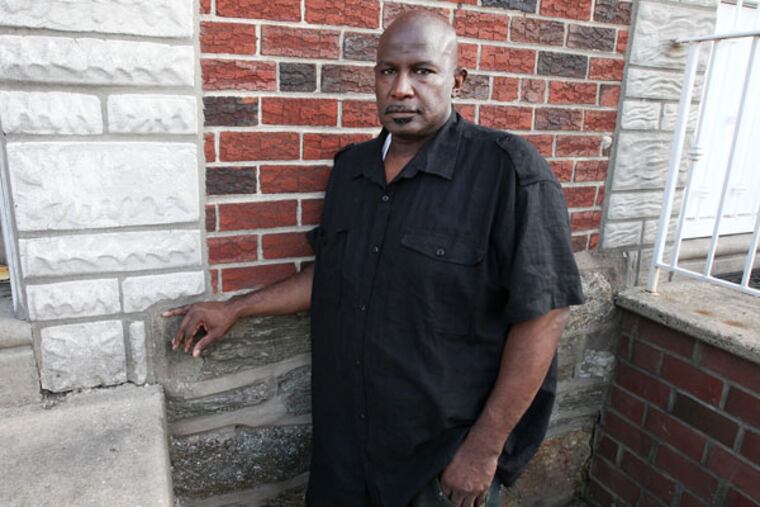Stop-and-frisk trial ends with seemingly conflicting ruling
The jurors found that two cops lawfully stopped plaintiff Herbert Spellman but acted maliciously.

A FEDERAL JURY in a civil case yesterday found that two police officers did not violate an ex-cop's constitutional rights and cause him harm when they stopped and frisked him in 2013 and did not use unreasonable force.
But the ruling in favor of Officers David O'Connor, 31, and Brad Momme, 29, and against plaintiff Herbert Spellman, 51, raised some confusion because jurors on their verdict sheet also found that the cops acted "maliciously or wantonly in violating Mr. Spellman's federally protected rights," and imposed $10,000 in punitive damages against each cop.
The jury questionnaire had instructed jurors not to proceed to the "maliciously or wantonly" question and not to consider damages if they answered "no" to the first two questions.
But the panel, contrary to its instructions, answered that question and imposed damages.
Paul Messing, Spellman's attorney, said afterward: "There's a great deal of confusion about what the verdict meant in this case because the jury also appeared to find that the officers violated Mr. Spellman's federally protected rights and wanted to impose damages. . . . We are attempting to get more information about this so that the actual will of the jury can be carried out, if at all possible."
Chief Deputy City Solicitor Craig Straw and Assistant City Solicitor Dimitrios Mavroudis, who represented the two cops, said the jury clearly found that the cops had reasonable suspicion to stop Spellman and didn't use unreasonable or excessive force.
Asked later about the jury's answers, Straw said: "I can't read the minds of the jurors, so I don't know why they ended up answering the next question."
U.S. District Judge Stewart Dalzell, in a memorandum, noted the jury's "confusion," but said the instructions were clear. He said jurors, after giving their verdicts, agreed with the statement that they "found in favor of the police officers and against plaintiff."
The judge noted that by law, he was obliged to enter judgment in favor of the two cops based on the jury's answers of "no" to the first two questions and based on the instructions to the jury.
The first two questions asked if O'Connor or Momme seized, searched or detained Spellman "in violation of the Fourth Amendment causing harm" to him, or if either cop "used unreasonable force" against Spellman, violating his rights and causing harm.
Regarding the jury's confusion, Dalzell wrote: "Although we readily agreed with [Messing] that there was an element of unfairness in this, we were nevertheless constrained to apply the law" by entering judgment for the cops.
The seven jurors, composed of white and black members, male and female, declined to comment after leaving the courtroom.
Spellman contended in a lawsuit and at trial that about 7:30 p.m. Sept. 10, 2013, O'Connor and Momme jumped out of a patrol car, grabbed him, stopped him for no reason, and verbally and physically abused him. He contended he was stopped because he is black. The two cops are white.
He said he was walking on Wister Street near 65th Avenue, on the border of East Germantown and West Oak Lane, looking for a bus stop to get home after he left his son's school orientation.
He said Momme and O'Connor forced him to keep his hands up against the patrol car even though it hurt him to do so. In 2006, Spellman, while an on-duty cop, was injured in a car accident. He said his injuries worsened after his encounter with the cops.
The cops said they did not manhandle Spellman. O'Connor testified that he stopped Spellman because he thought Spellman was about to engage in a drug deal. He said he saw Spellman walk toward a man known to cops as a drug dealer, then walk away after the drug dealer noticed the cops.
Spellman was not cuffed. After more cops and a supervisor arrived, he was patted down, then released.